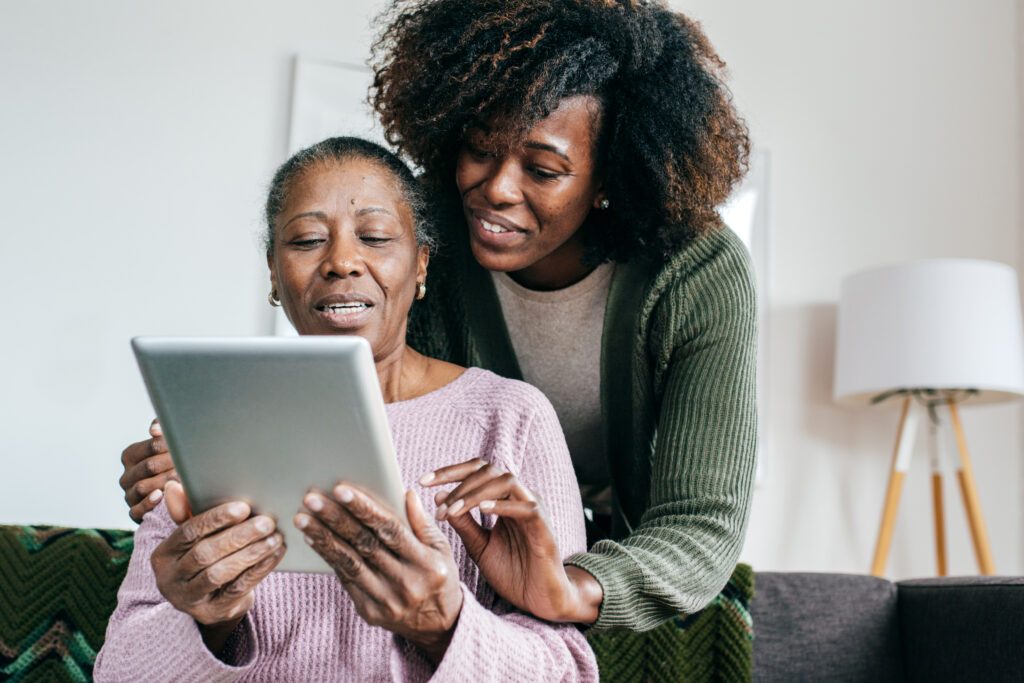Caregivers are a vital part of a participant’s role in a clinical trial.
As a caregiver, you can support your loved one and be a second set of eyes for the trial team.
We want to offer you the support you need as a caregiver. Read this section to help decide if the role is right for you and get tips on how to care for yourself.
The role of a caregiver
As a caregiver, you play a key part in your loved one’s clinical trial experience. Before you take it on, it’s important to know what the role entails so you can decide if the commitment is right for you.
A caregiver’s responsibilities may include to:
- Track investigational medicine amounts (doses) to make sure they follow the clinical trial rules
- Be a patient advocate and ask questions on behalf of the participant if they are unable
- Tell the trial team about any side effects you’ve noticed or that the participant tells you
- Take notes at trial visits so the participant can focus on the doctors or tests
- Take the participant to and from trial visits if they can’t get there themselves
- Offer support to the participant if they are struggling mentally or emotionally
The role of a caregiver is not easy, but it is invaluable to both the participant and the trial team. Your support and encouragement are a large part of a successful clinical trial.
Caring for yourself when you’re a caregiver
Providing support to a clinical trial participant can feel demanding at times. It’s easy to get so busy in your role that you forget about yourself. But you need to take care of yourself if you are going to help take care of others.
- Eat healthy foods such as fruits and vegetables for snacks and meals, and drink water and other liquids whenever you’re thirsty
- Get plenty of rest so you have the energy to be there for others – 7 to 8 hours of sleep a night plus short naps if you get tired during the day
- Take breaks regularly so you’re able to relax and release stress
- Find a hobby so you have something fun to look forward to
- Keep an eye on your own health because you can’t help anyone if you get sick – for example, get your yearly check-up and flu shot
- Connect with friends as they can bring you comfort and support
Remember that the world doesn’t rest on your shoulders. You may be in a caregiving role, but it’s vital that you care for yourself, too. And ask for help from others when you need it.

